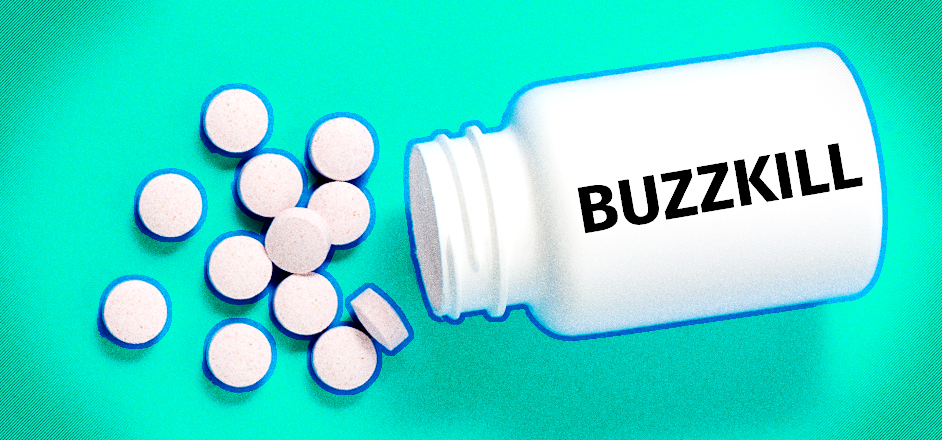On drinking, there's sometimes a happy middle. Stone sober on New Year's Eve, and you're not the DD? People look at you funny. Browned out at Thanksgiving? That's too much.
That's why new attention is being paid to a pill that helps you party like Goldilocks.
The pill is called naltrexone. If you swallow it before drinking, the Hennessy doesn't taste as delicious, your sixth beer is less lip-whetting than your first. You won't get out of control. You'll just be underwhelmed.
Science loves naltrexone, and studies pour in praising it. There are rave reviews of it online.
Nathaniel Moore has seen the light. He's a family medicine doctor in Aurora, Colo., who has about 200 patients currently taking naltrexone.
"People drink a lot less when they take naltrexone, and they have a lot fewer drinking days," Moore says. Moore's patients come from all walks of life; 20-year-olds and 60-year-olds, rich and poor, all people who want to stay in the middle, sobriety-wise. "If they go out to a dinner and they can't have a drink, then, it might be perceived that there's something wrong with them," Moore says. "So they don't necessarily want to drink nothing. But if they aren't on the naltrexone, they'll drink two bottles of wine and get sloppy."
The pill got famous — and Moore heard about it — from a book called "The Cure for Alcoholism," by Roy Eskapa. Eskapa said the pill changes the "addictive 'software' in the brain," rolling back the brain to its "original pre-addicted state."
There's a downside, though: your whole life might feel boring. See, naltrexone works by binding to your mu-receptors. Mu-receptors are what sense pleasurable poisons like Coors and heroin. With the naltrexone cockblocking the mu-receptors, the molecules of heroin and alcohol can't grab onto anything, and they fuck right off.
Sadly, naltrexone also cockblocks your mu-receptors from some purely good stuff, like music and sex. Science proves it. When researchers gave naltrexone, people loved music less. Yes — music is a drug, as we've recently said.
So a minority of naltrexone users struggle to feel good from anything in life at all — hard-ons, heroin, hair metal, hamburgers. They feel numb — and not comfortably numb. Thus, a few people cease.
Moore says fears of zombification are overhyped. "Rarely do patients state that they need to stop naltrexone because of lack of interest in other things," he says. "And rarely do patients complain about lack of interest in other things."
All things considered, Moore says naltrexone is maybe the best way to crack open the booze — and then keep a lid on it.
"It's not a controlled substance, it's not expensive, it's just that doctors don't prescribe it very much — I don't know why," Moore says.
Given the wrecking ball that alcohol abuse can be, doctors might want to prescribe it more, Moore says.
"People are killed in drunk driving accidents every day, people are involved in alcohol-related domestic violence incidents every day," Moore says. "It's a much bigger problem than the heroin problem, except it's societally accepted."
Having one or two drinks is socially accepted almost everywhere. Someday, naltrexone might be, too.




Leave a Reply